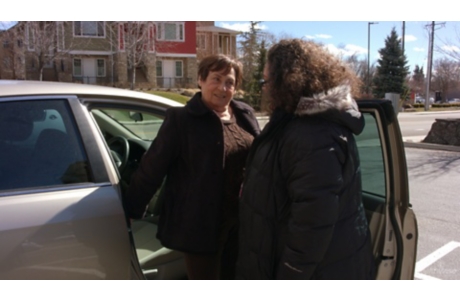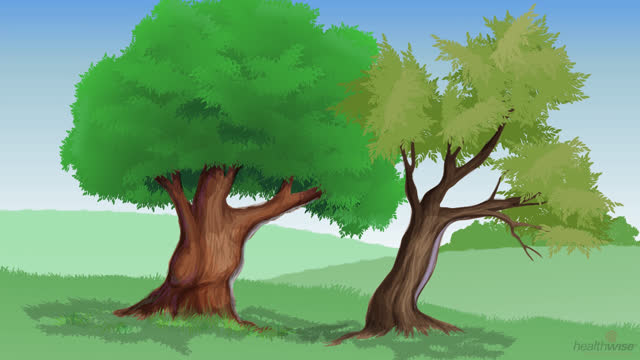Caregiving: Fingernail Care
Overview
Nail care is important for health and safety. A person can accidentally scratch themself (or you) if their fingernails are too long. Nails that are dirty or too long—especially for someone who usually cared for their own nails—also can be a sign that the person needs more help with personal care.
You can do basic nail care at home. Usually all you need to do is keep the nails clean and at a safe length.
Trimming fingernails
Try to trim the person's nails regularly. Check them each week to see if they need to be trimmed. It's easiest to trim nails after the person has had a shower or has washed their hands. It makes the nails softer and easier to trim.
Start by gathering your supplies. You will need fingernail clippers and a nail file. You may also need nail polish and nail polish remover.
To trim the nails:
- Wash and dry your hands. You don't need to wear gloves.
- Use nail polish remover to take off any polish.
- Hold the person's hand steady with one hand while you trim the nails with your other hand. Trim the nails straight across.
- The nail length can vary depending on what the person prefers. But in general, keep the nails even with—or not much longer than—the tip of the finger.
- Let the nails dry if they are still damp and soft.
- Use a nail file to gently smooth the edges of the nails, especially at the corners. They may be sharp after the nail is cut straight.
- Apply nail polish, if the person wants it.
General nail care
Hand-washing
If you're helping someone wash their hands, wash the underside of the nails with soap and water. This is easiest with a nail brush. Remember that nails tend to get harder with age, and the skin on the hands can become thin and dry. So offer the person hand lotion after washing their hands.
Avoiding infection
When you're caring for someone's nails, it is important to remember not to trim or cut the cuticles. A minor cut in a cuticle could lead to an infection.
When you're washing someone's hands or trimming their nails, look for any signs of infection from a cut or other injury. Signs may include pain, swelling, redness, or warmth. This is especially important if the person has diabetes. Call the person's doctor if the cut doesn't heal with home treatment, such as antibiotic ointment and a bandage.
Credits
Current as of: November 16, 2023
Author: Ignite Healthwise, LLC Staff
Clinical Review Board
All Healthwise education is reviewed by a team that includes physicians, nurses, advanced practitioners, registered dieticians, and other healthcare professionals.
Current as of: November 16, 2023
Author: Ignite Healthwise, LLC Staff
Clinical Review Board
All Healthwise education is reviewed by a team that includes physicians, nurses, advanced practitioners, registered dieticians, and other healthcare professionals.




